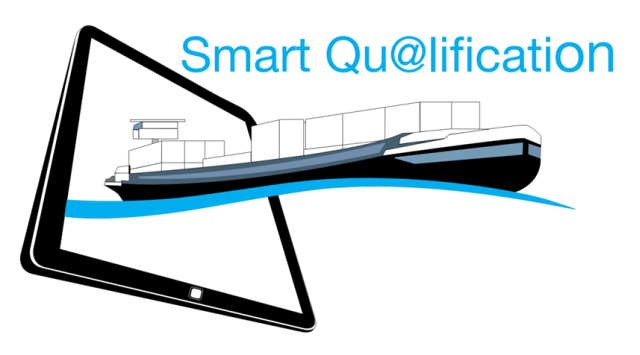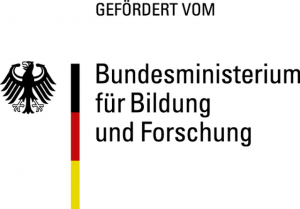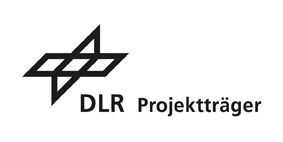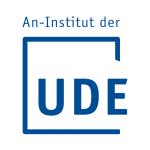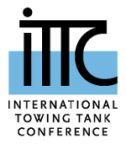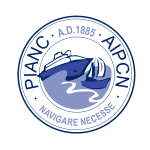Smart Qu@lification
Entwicklung und Erprobung innovativer, lernortflexibler Qualifizierungskonzepte in der Binnenschifffahrt unter Einsatz digitaler Medien
In der Binnenschifffahrt ist es wichtig, auch künftig über ausreichende personelle Ressourcen verfügen zu können. Die beruflich bedingte Mobilität dieser Berufsgruppe erfordert gut zugängliche und inhaltlich bedarfsgerechte Aus- und Weiterbildungsangebote. Ein wesentliches Ziel war daher die Entwicklung von Konzepten und Lernmodulen für ein mobiles Lernen unter Nutzung digitaler Medien.
Um die Leistungs- und Innovationsfähigkeit in der Binnenschifffahrt zukünftig zu gewährleisten, ist es erforderlich, auf ausreichende personelle Ressourcen in qualitativer und quantitativer Hinsicht zurückgreifen zu können. Hierfür ist ein für diese mobile Berufsgruppe entsprechend gut zugängliches und inhaltlich bedarfsgerechtes Aus- und Weiterbildungsangebot sicherzustellen. Ziel des Vorhabens „Smart Qu@lification“ war daher die Entwicklung von Konzepten und Lernmodulen für ein mobiles Lernen unter Nutzung digitaler Medien unter Berücksichtigung der sehr spezifischen Bedingungen und Bedürfnisse der Branche. Zunächst wurde eine quantitativ-empirische Erhebung in der Binnenschifffahrtsbranche durchgeführt, um relevante Qualifikationsbedarfe, Themengebiete sowie technische und zeitliche Rahmenbedingungen für die Konzeption von Lernmodulen in inhaltlicher wie didaktisch-methodischer Hinsicht zu ermitteln. Bei der Themenfindung wurden auch die Einschätzungen von Branchenexperten berücksichtigt. Für die endgültig ausgewählten Themen Radar-Grundlagen, UKW-Binnenschifffahrtsfunk, Energie-effizientes Fahren, Streckenkunde, Recht in der Binnenschifffahrt, Leckabwehr in der Binnenschifffahrt sowie Navigationssimulation wurden im weiteren Verlauf E-Learningmodule entwickelt, die für unterschiedliche Zielgruppen von der beruflichen Aus- bis zur Weiterbildung eingesetzt werden können. Mit diesen Modulen wurden sowohl wirtschaftlich-kaufmännische als auch technische Themen aufgegriffen. Eine Besonderheit stellt die im Rahmen des Projektes entwickelte Online-Navigationssimulation dar. Im Hinblick auf die zu nutzende Lernplattform fiel die Entscheidung auf das Moodle-System, da dieses die vom Projekt gestellten Anforderungen hinsichtlich Inhalt und Handhabung erfüllte.
Die Lernmodule wurden im Verlauf des Projektes entwickelt, technisch umgesetzt, über das Learning Management System von Endnutzern aus der jeweiligen Zielgruppe erprobt und unter wissenschaftlicher Begleitung evaluiert. Die bei der Evaluation gewonnenen Erkenntnisse sowie entsprechende Hinweise und Kritik, auch aus anderen Quellen, wurden an die für die jeweiligen Module zuständigen Teams zurückgemeldet, welche erforderliche Änderungen an den Lernmodulen vornahmen. Die für Aus- und Weiterbildung in der Binnenschifffahrt zuständigen Bildungsträger Bundesverband der deutschen Binnenschifffahrt (BDB) als Antragsteller und das Schiffer-Berufskolleg RHEIN (SBKR) als assoziierter Projektpartner waren maßgeblich in die Entwicklung dieser Konzepte eingebunden. Nach Projektende übernehmen sie die Verwertung der erarbeiteten Lernmodule incl. deren Vermarktung und weiterer Pflege.
Projektlaufzeit:
- Januar 2015 – Dezember 2017
Förderkulisse:
- Digitale Medien in der beruflichen Bildung
Ansprechpartner:
- Dipl.-Oec. Dieter Gründer
E-Mail: gruender@dst-org.de
Tel.: 0203 99369-56
Verbundpartner:
- DST – Entwicklungszentrum für Schiffstechnik und Transportsysteme e. V.
- Universität Duisburg-Essen Fakultät für Bildungswissenschaften – Institut für Berufs- und Weiterbildung – Wirtschaftspädagogik/ Berufliche Aus- und Weiterbildung
- Universität Duisburg-Essen – Fakultät für Bildungswissenschaften – learning lab | Mediendidaktik und Wissensmanagement
- Bundesverband der Deutschen Binnenschifffahrt e.V. (BDB)
